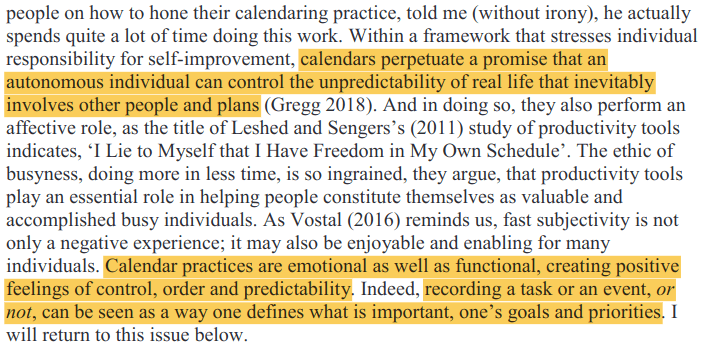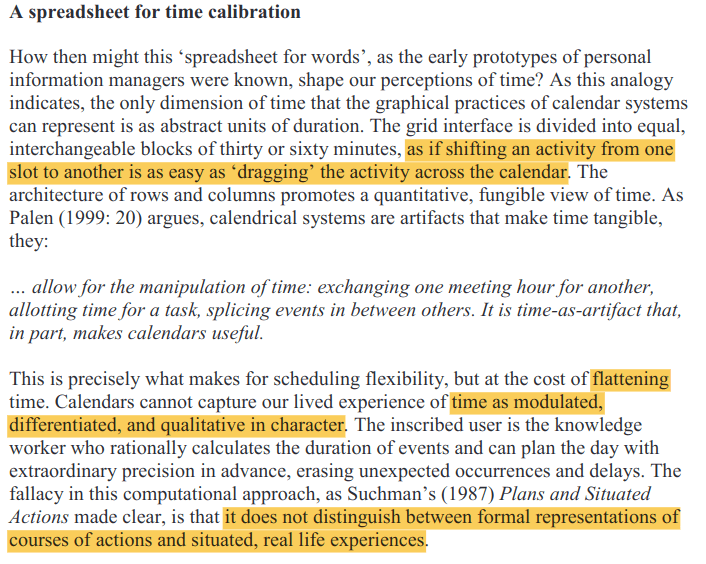🧵 View Thread
🧵 Thread (7 tweets)

This section of Judy Wajcman's paper "How Silicon Valley sets time" gives me a sense of pride in relation to having built https://t.co/lRiGUxBh9B—and is related to why I'm wary of adding any calendar ui to it. (the highlights are @devonzuegel's) https://t.co/1asAgCBMaL


@CompliceGoals is made for a structured improvisational approach to productivity. You write down what your top priorities are for the day, and you can re-order them, but you can't plan out your whole week in advance, and there isn't exact times of day.

Plus, in relation to that last point around recording things vs not... Complice is explicitly saying "what are your goals & priorities? how do you make sure your day is focused on those and not random busywork?" 🎯"what do I want to make happen?" not "what's on my plate?" 📥

This paper resonates with my recent thinking about McGilchrist's @divided_brain model too—the impact of attentional mode on experience. Linear, gridlike, interchangeable time (what the Ancient Greeks called "chronos") is definitely a more left-hemisphere way of viewing time. 🧠 https://t.co/DFDRTg4IK0


What this article points out is that we don't even really consider that there might be other ways to view time. The other Ancient Greek word was "kairos", and it points at a more subjective time, based on the feeling of a given moment or arc of experience.

If you've ever had the experience of "putting something off" and then the moment it actually happens is clearly the *right* moment? Like something just clicks? That's kairos in action. But we're afraid to trust what we can't systematically control. Well, our left hemispheres are.

I think https://t.co/lRiGUxBh9B is more compatible with this kind of serendipity & opportunism than more rigid or grid-based systems. And if I take that seriously, what additional features might it want...? 🤔